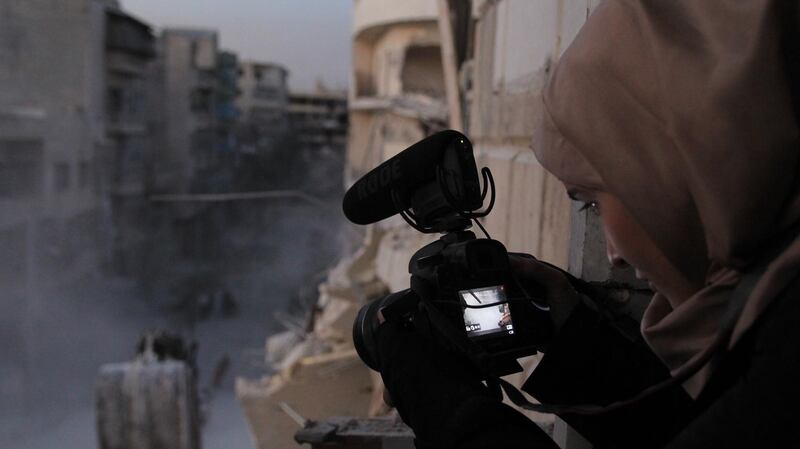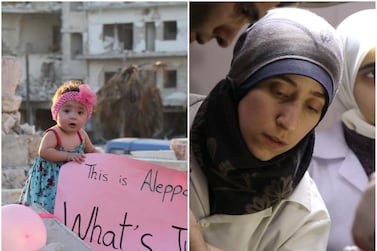This year, Oscar nominations were once again met with criticism as many were left disappointed by the lack of diversity among the Academy's chosen nominees. We need voices from different backgrounds, ethnicities and countries to be represented at the Oscars, but despite this setback, Middle Eastern filmmakers managed to claim many victories at the world's foremost film awards. Two Syrian documentaries, For Sama, by Waad Al Kateab and co-director Edward Watts, and The Cave, directed by Feras Fayyad, were nominated for Best Documentary Feature. Short film nominees Brotherhood and Nefta Football Club are also set in the Arab world, in Tunisia.
This is not a first for talented Arab filmmakers, who have had their work nominated at the Oscars for decades. In fact Fayyad himself had already been nominated for his documentary Last Men in Aleppo in 2018. As early as 1970, Algerian-French movie Z became the first Arab-produced film to ever win an Oscar. And last year, Lebanese filmmaker Nadine Labaki became the first Arab woman to be nominated at the Oscars, for her feature film Capernaum.
These nominations offer international recognition, and can help amplify the voices of Arab directors and filmmakers, who work hard to put forth an authentic perspective of the region. The facts and events showcased in these movies have the power to touch a global audience, giving viewers access to often forgotten parts of the world.
Documentaries are also among the first witnesses and recorders of history. They serve as a cinematographic archive for generations to come. The nomination of specifically Syrian documentaries is all the more crucial, as they give the people of Syria a voice at a time when the regime is cracking down on dissent at home and Western discourse often reduces the plight of millions seeking shelter abroad to a refugee “crisis” or “problem”. To counter this dehumanising rhetoric, the two documentaries follow the lives of brave Syrian women who are doing their best simply to survive.
Filmed over the course of five years For Sama documents the battle for Aleppo through the eyes of film director Al Kateab, a woman who is doing all she can to raise her young daughter Sama in the embattled city.
The Cave is set in Ghouta, a city that has gone through untold suffering, sustaining chemical attacks and a five-year siege launched by the Syrian regime. The documentary follows the daily life of Amani Ballour, a female doctor who saves lives in a makeshift hospital, tucked away in a cave. These stories deserve to be told to an international audience, which has all but forgotten the plight of Syrians, as the war enters its ninth year.
Another victory for the region at the Oscar nominations is that Arab directors, producers, actors and film crews, are finally receiving the international recognition due to them.
The artists, filmmakers and documentarians of the Middle East should get all the support they need to produce movies and art pieces about their homeland because they can tell its authentic stories. Their vision will undoubtedly shape a more accurate perception of this part of the world than any Hollywood blockbuster. Such movies are quick to portray the Arab world as a monolithic desert landscape ravaged by war and invariably depict its people as dangerous terrorists or victims waiting to be saved by the West.
A prime example is the fiasco around the American series Homeland, which the Lebanese government threatened to sue in 2012, as it accused the producers of damaging the country's tourism sector. One episode in particular painted lively Beirut as a deserted war zone, and its bar street in Hamra as a haven for extremists.
For a country like Syria, such stereotypical depictions come at an even bigger cost as it reinforces Syrian President Bashar Al Assad's claim that any dissenting voices are terrorists in disguise.
But if For Sama and The Cave have taught us anything about Syria, it is the fact that its people, much like Kateab and Ballour, are not doomed to be victims or militants. Many are resilient survivors in the face of tyranny. We can only hope that the achievements of more Middle Eastern directors will be recognised and rewarded in the future. The region is filled with talented artists who deserve to have their work shown to the world.






